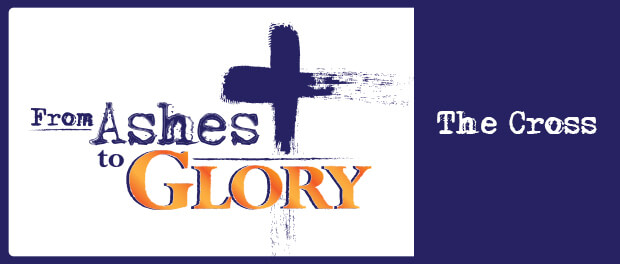 This post is a part of the Lenten series “From Ashes to Glory.”
This post is a part of the Lenten series “From Ashes to Glory.”
The prayer of the Examen rests on a profound and perilous belief: the Father’s will is greater than my own. I accept the reality that His will, not mine, will decide what I must do and who I am to be in life. Hence, I will grow into my authentic self not by enacting the many desires that I absorb from the world around me. Rather, I become my true self by enacting those desires that God is raising in me and none that go against them. I accept this, humbly.
Jesus of Nazareth did this. In His Passion Christ’s authentic self was not being destroyed; it was being realized and made real. We know that because He has risen from the dead. But we must remember that while they were murdering Him, Jesus could only trust the Father.
The Examen, most directly of all programs of prayer, is the one that helps us know and accept God’s will in its details. The prayer is humble: we are acknowledging that God’s will is to be done. We check the Commandments. We harken to Jesus’ admonitions. We find where the Spirit in us is closing down a vice or opening up a virtue.
The Examen makes that possible and fruitful. I pray, and then I examine myself, my awareness, my conscience, my habits, my virtues—always in what I am enacting. When I do that steadily, I get closer to knowing how to do God’s will, even if I am to imitate the crucified Jesus.

Fr. Jim Martin tells us that words from God give us comfort and my words/ thoughts bring chaos and frustration.
One of the intresting points in the debate over God will / My will is that sometimes we never know.
We just have to go for it but we do this knowing that one day all oue questions will be answered when we see God as he is face to face.
Marg,
I struggle with the same questions. How do we know if our thoughts, feelings, reactions, desires, etc. are our own – in the selfish sense – or God’s?
I think the answer to this lies, in part, from learning how to discern the spirits. Fr. Tim Gallagher OMV’s book on this has been very helpful to me. It teaches how to interpret and respond to those affective movements in our hearts so as to move more closely to God’s will. It is a profound work, but also very practical and useful I think.
Thank you, Patrick. I will check it out. I often wonder how many folks actually think about this stuff. I hope more than the two of us!
m.
Untold numbers throughout man’s history.
“Hence, I will grow into my authentic self not by enacting the many desires that I absorb from the world around me. Rather, I become my true self by enacting those desires that God is raising in me and none that go against them.”
This is beautifully said, and struck me deeply. What a wonderful guiding principle. It feels like living this would be true liberation. Something I want to print and post on my wall.
God’s will, my will – most times it is hard to know who is speaking. I know what I would like and I know where I am most disappointed with my life so far. I am trying to lean away and let Him drive, but most times I just don’t get it. My instinct is to act, rather than to detach and just be. This is something that is important for me to know. I work at the Examen and am trying to listen rather than impose my will. Waiting for the lightbulb moment!!!
m.